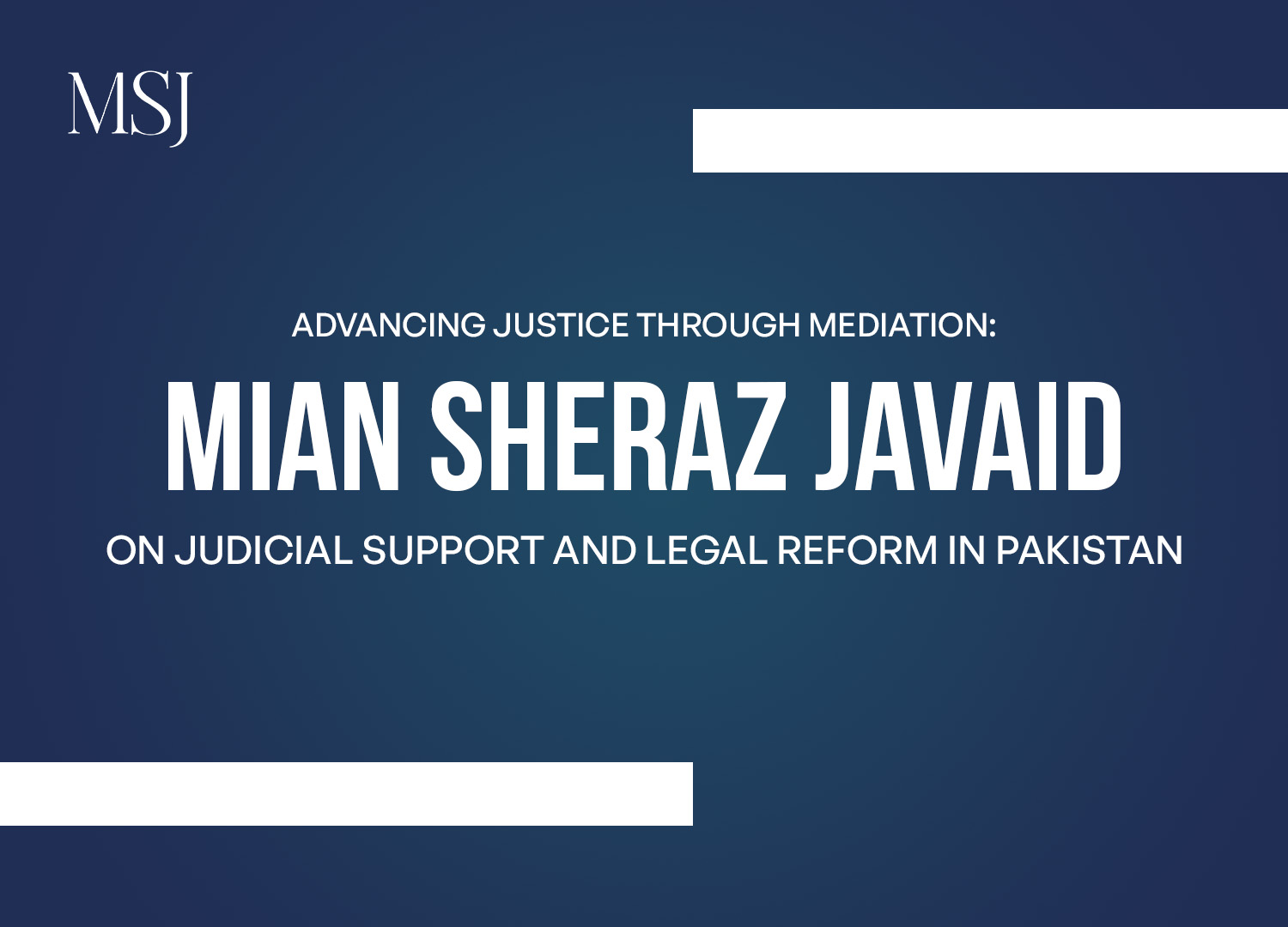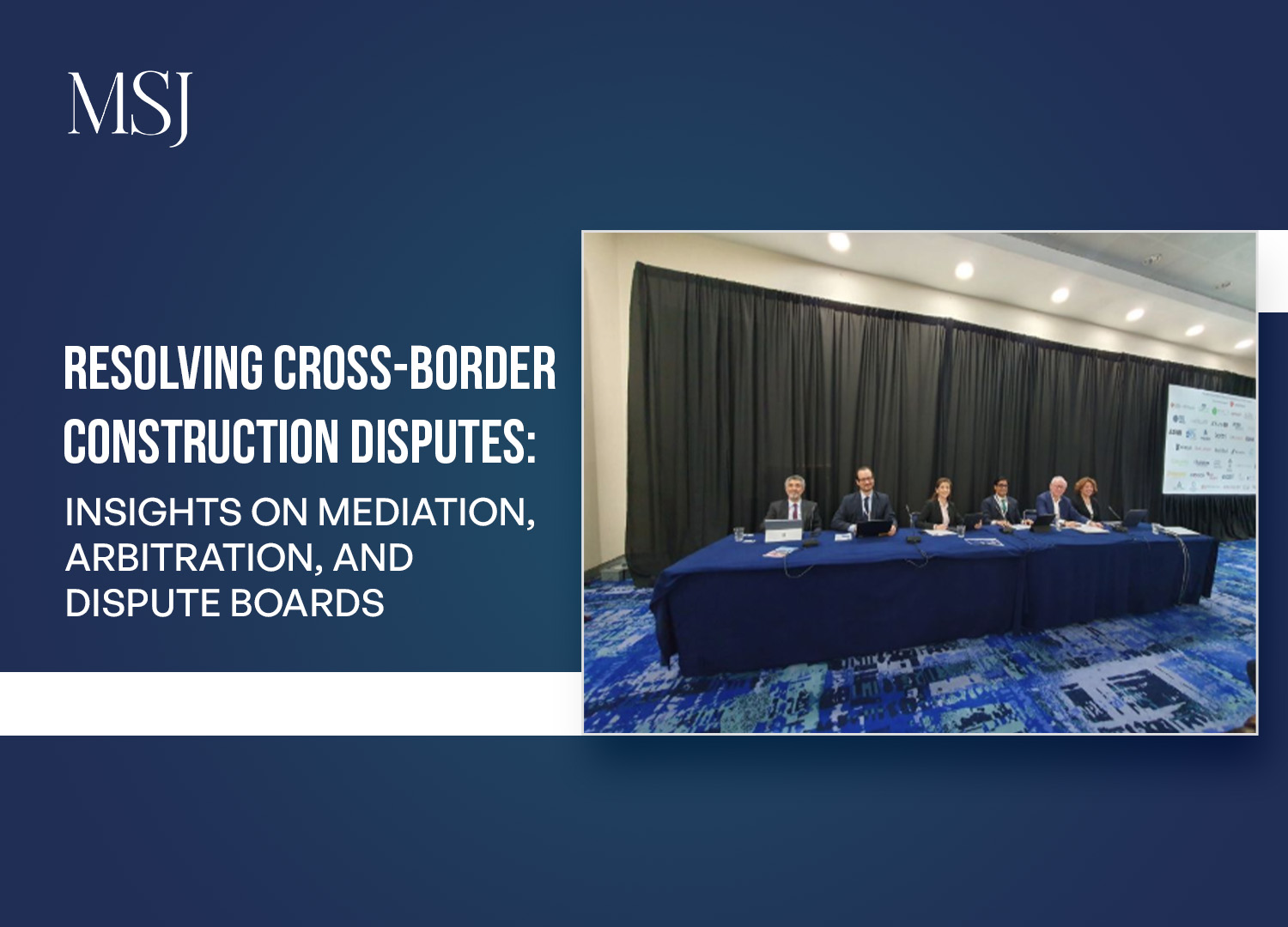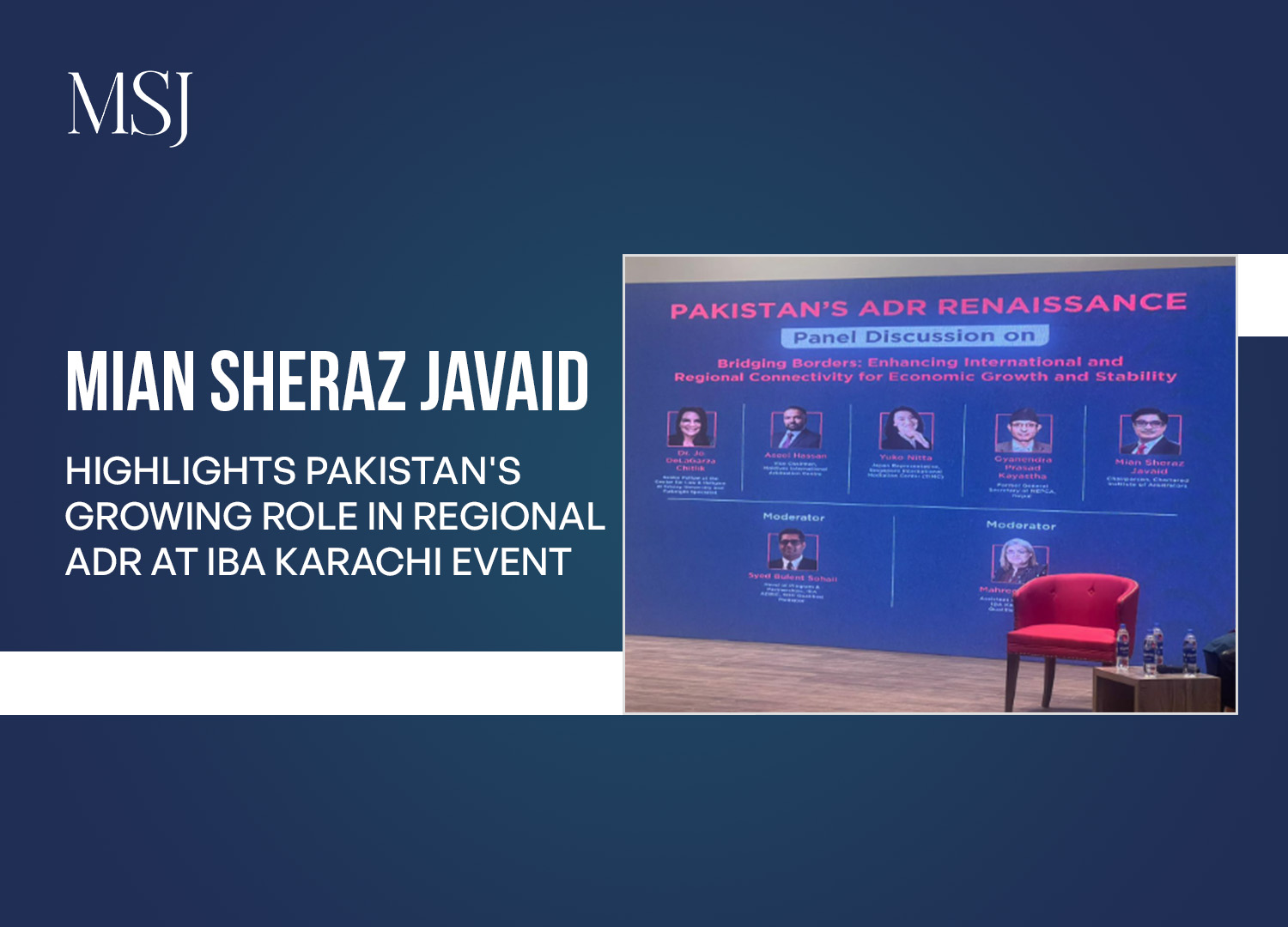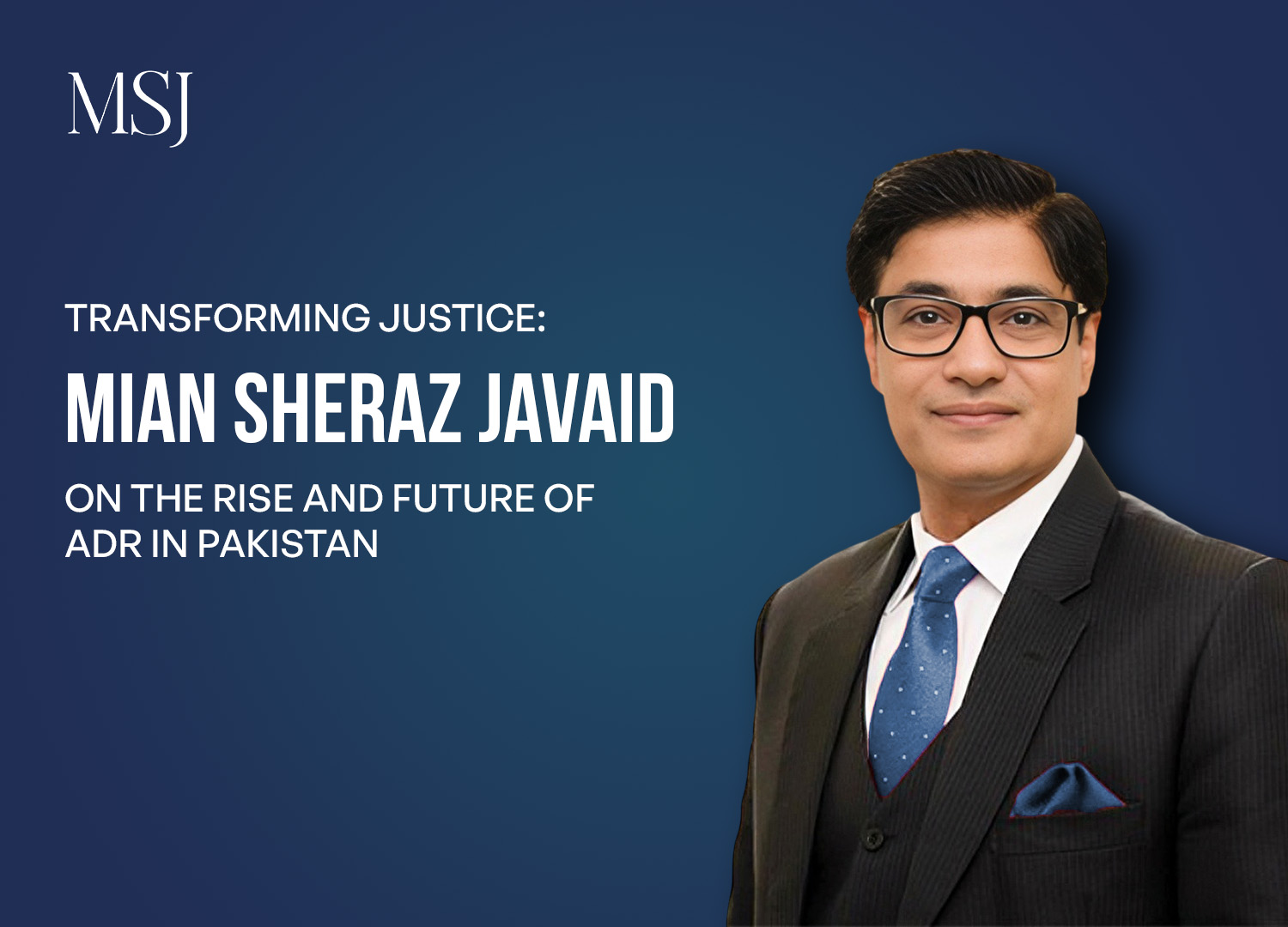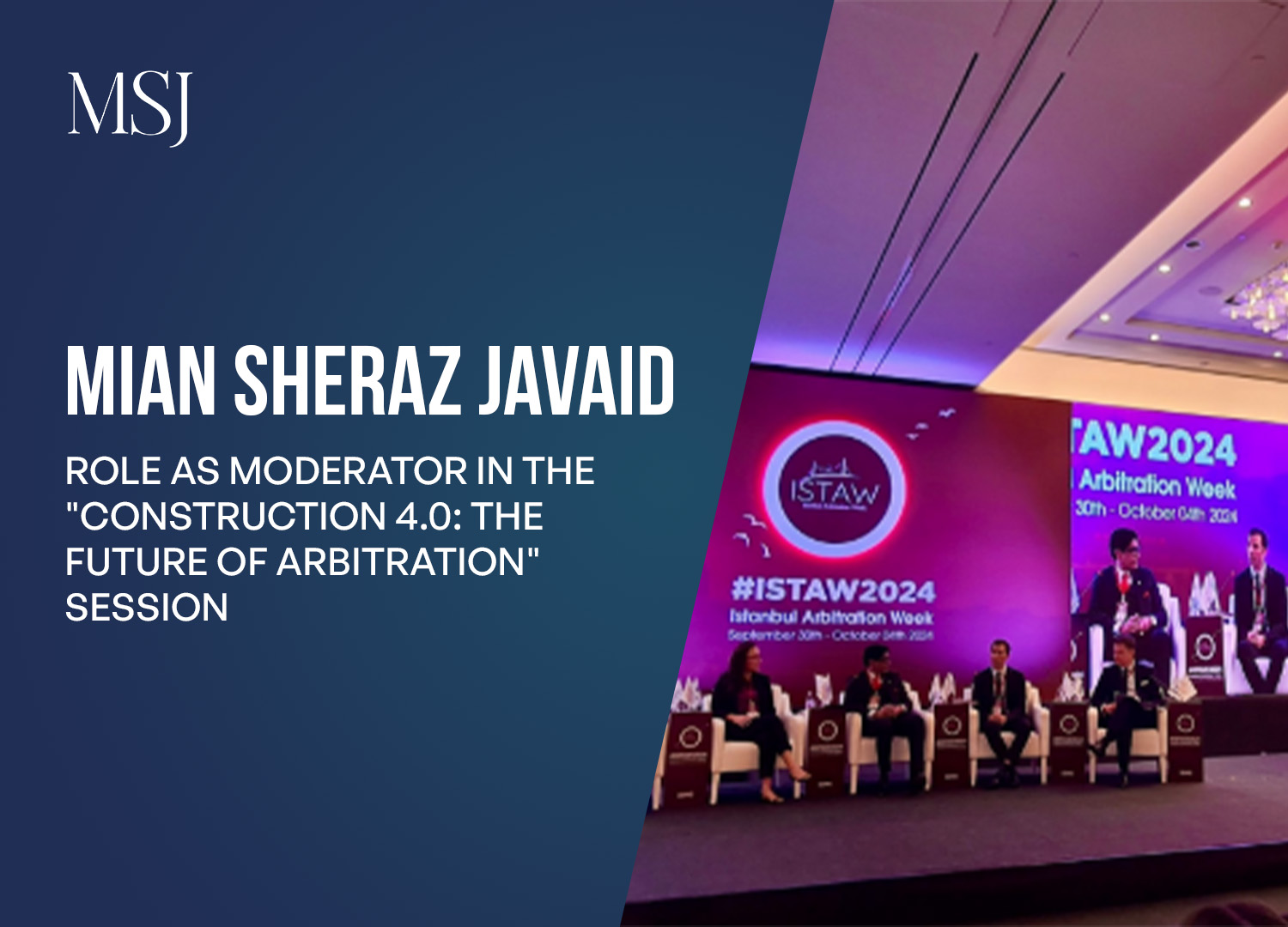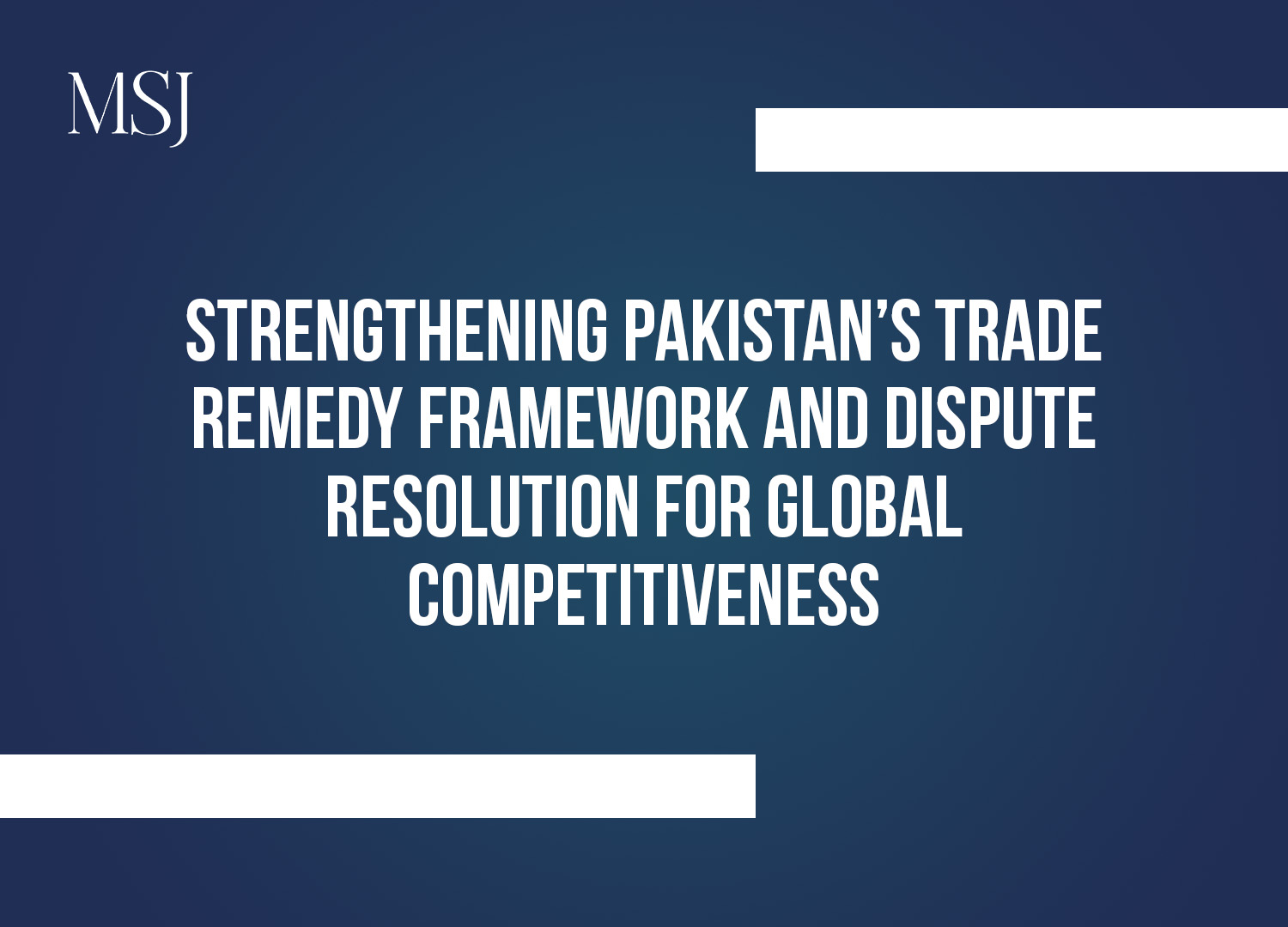The Latest Developments in Dispute Board Utilization in Pakistan
On the 22nd of February 2024, Mian Sheraz Javaid, Pakistan's country representative for the Dispute Resolution Board Foundation (DRBF), gave a thorough breakdown of how Dispute Boards (DBs) are becoming more relevant in the MENA (Middle East and Northern Africa) region in construction at the virtual MENA Regional Conference hosted by the DRBF.
Mian Sheraz Javaid, Pakistan's country representative for DRBF, gave a thorough breakdown of how Dispute Boards (DBs) are becoming more relevant in the MENA (Middle East and Northern Africa) region in construction. As the MENA area saw quick growth and big investments, with building projects worth about $2.34 trillion, it became even more crucial to have good ways to solve disputes. These investments covered many big government plans, like Saudi Arabia's Vision 2030, the China-Pakistan Economic Corridor (CPEC), and lots of large energy and infrastructure projects. But Sheraz pointed out that as building projects got bigger and more complex, people worried if the usual legal and construction methods in these fast-growing economies could keep up with the quick growth given the problems of going over budget, delays, and arguments. This is where Dispute Boards (DBs) stepped in, acting as a tool to lower risks and solve conflicts that were part of both project contracts and international laws governing big projects.
DISPUTE BOARDS IN MENA
Sheraz explains that Dispute Boards became popular in the MENA region and other areas for a few main reasons. One big reason was that people started using FIDIC contracts a lot in the FIDIC 2017 set, which had become normal in MENA construction law. These contracts made it necessary to have Dispute Avoidance/Adjudication Boards (DAABs) in many projects. Research showed that when people included DBs in FIDIC contracts, they could stop up to 70% of big arguments from happening. Also, Sheraz talks about how big banks like the World Bank and the Asian Development Bank (ADB) paid for many big building projects in the MENA region. These banks started asking for DB rules to be part of their money deals. They did this to make sure projects followed their strict rules about how things should be run, how open everything should be, and how people should be responsible for what they do. This made DBs even more important and needed because they helped make sure projects met international standards and did what global money lenders wanted.
Government-supported infrastructure projects, especially those with tight deadlines and cost-control measures, also contributed to the growing use of DBs in the region. Sheraz discussed how the inclusion of DBs in such projects had been shown to reduce project delays by as much as 25%, providing a critical mechanism for keeping projects on track. Given the scale and ambition of MENA’s construction projects, governments had increasingly adopted DBs as a tool to meet both deadlines and budgetary constraints while minimising disruptions caused by unresolved disputes. This trend towards embracing DBs was not limited to the MENA region but extended globally as more countries and regions recognised the value of dispute boards in complex, high-stakes projects.
BENEFITS OF DISPUTE BOARDS
Dispute Boards had a wider impact than just settling disagreements. They played many roles in cutting down risks and helping projects succeed. Their effect on money matters stood out as one of the biggest pluses. Research showed that DBs could lower total project costs by up to 12%. They did this by stopping long fights pricey arbitration, and court cases. This meant savings for everyone involved by dodging the big money hit that arbitration or going to court could bring. Plus, DBs were quick at fixing problems. This helped keep the building industry's finances steady. It created a more stable place for investment where people could trust their projects would finish on time and stay within budget.
Beyond the financial aspect, Sheraz asserted that DBs also had a positive socio-economic impact. When construction projects were completed on time, they created jobs, stimulated economic growth, and improved the quality of life for local populations. For instance, research by the World Bank had highlighted the role of dispute resolution mechanisms, including DBs, in ensuring the timely delivery of infrastructure. Timely completion of projects enhanced public services and infrastructure, which had a lasting positive effect on the local economy and the well-being of the population. Furthermore, by reducing delays, DBs contributed to long-term economic growth in the region, generating employment opportunities and improving community facilities, thus supporting overall regional development.
The psychological impact of DBs was another important yet often overlooked benefit, Sheraz noted. Complex construction projects, particularly those with large financial commitments and tight deadlines, created a high-pressure environment for all involved. DBs helped alleviate this pressure by providing a structured forum for dispute resolution and offering stakeholders a sense of support and reassurance. By maintaining a collaborative rather than adversarial environment, DBs helped reduce stress and anxiety, fostering a more positive and productive working environment. This was especially important in large-scale projects, where team morale and a cooperative atmosphere were key to success.
Dispute Boards had a wider impact than just settling disagreements. They played many roles in cutting down risks and helping projects succeed. Their effect on money matters stood out as one of the biggest pluses. Research showed that DBs could lower total project costs by up to 12%. They did this by stopping long fights pricey arbitration, and court cases. This meant savings for everyone involved by dodging the big money hit that arbitration or going to court could bring. Plus, DBs were quick at fixing problems. This helped keep the building industry's finances steady. It created a more stable place for investment where people could trust their projects would finish on time and stay within budget.
The perceived effectiveness of DBs played a crucial role in shaping stakeholder confidence. As Sheraz noted, a well-regarded DB enhanced the reputation of the project and the organisations involved, promoting smoother project execution. When stakeholders perceived that disputes would be managed impartially and efficiently, they were more likely to cooperate, reducing the likelihood of adversarial conflicts. This trust in DBs helped foster a culture of reliability and transparency, ensuring that project management and dispute resolution processes were seen as both effective and fair.
DISPUTE BOARDS IN PAKISTAN
Referring to Pakistan, Sheraz discussed how the integration of DBs into the regulatory framework was a forward-looking measure. The Pakistan Engineering Council’s adoption of FIDIC 2017 conditions of contract reflected the country’s alignment with international dispute resolution standards. By incorporating DBs into both public and private sector projects, Pakistan ensured that standardised procedures were in place for dispute resolution. While this was a step toward harmonising dispute resolution frameworks, challenges still existed, particularly in the enforcement of DB decisions.
Sheraz notably discussed a landmark case, China Water & Electric Corporation v. National Highway Authority, and how it set a judicial precedent in Pakistan by enforcing an interim DB ruling before arbitration proceedings. This ruling was significant, as it ensured that DB decisions, even in cross-border disputes, were respected and binding. It also reaffirmed Pakistan’s commitment to international dispute resolution norms, which was crucial for attracting foreign investors and contractors who sought certainty and fairness in the resolution of disputes.
Despite the progress made, several challenges remained in the widespread adoption of DBs in Pakistan. One key issue was the perception of DBs as an unnecessary cost, particularly for smaller projects. Sheraz discussed how many stakeholders still viewed DBs as an additional financial burden, not understanding that they could provide long-term savings by preventing costly delays and arbitration. Another challenge was the perception of bias, with some stakeholders believing that DB members might be partial to the party that hired them. While DB members were formally bound to impartiality, overcoming these perceptions was essential to ensuring trust in the DB process. Additionally, DBs faced cultural resistance in regions where traditional dispute resolution methods like litigation and arbitration were more established. Educating stakeholders and promoting awareness about the benefits of DBs was essential for overcoming this resistance and encouraging broader acceptance.
Finally, DBs were sometimes viewed as bringing unnecessary bureaucracy to a project, slowing down decision-making processes. However, when applied properly, DBs streamlined dispute resolution, avoiding costly delays and ensuring that disputes were resolved quickly and efficiently. Sheraz cited research and real-world examples, such as the Panama Canal Expansion and London's Crossrail project, and how they demonstrated how DBs could avoid costly litigation and arbitration, saving both time and money.
CONCLUSION
Sheraz stated that education and awareness programs were critical to overcoming these challenges. Organisations like DRBF, FIDIC, and Ciarb have been proactive in promoting the benefits of DBs through training and awareness campaigns. These programs highlighted successful case studies and emphasized how DBs reduce costs, prevent delays, and mitigate risks. Moreover, the DB process was made more transparent and impartial in its decision-making process, thereby reducing the fear of bias and increasing trust in the DB process. In this regard, Sheraz's speech argued that, ultimately, DBs were set to play a pivotal role in the successful delivery of construction projects not only in Pakistan but also in the MENA region and worldwide.


